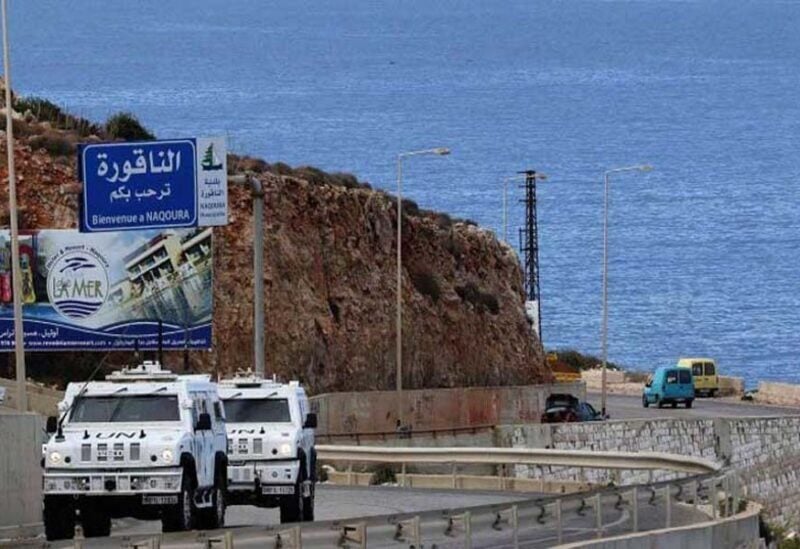
naqora
The US mediation in the maritime border dispute between Lebanon and Israel made a new breakthrough on Monday.
Caretaker Foreign Minister Abdallah Bou Habib described it as “massive progress” that has yet to reach a final agreement that would lead to the resumption of indirect negotiations between Lebanon and Israel at al-Naqoura.
The negotiations will not be resumed before the agreement is reached and before the US mediator, Amos Hochstein, returns to the region.
The envoy has been pressing efforts to clinch a rare agreement between enemy states that should allow both to develop offshore resources.
Hochstein had arrived in Lebanon on a two-day visit for talks over the maritime dispute.
On Monday, he met with President Michel Aoun, parliament Speaker Nabih Berri and caretaker Prime Minister Najib Mikati at the presidential palace in Baabda.
He presented the Israeli response to the Lebanese offer made in June over the border.
The envoy said he remained optimistic about making progress towards a deal and looked forward to returning to the region to make a “final arrangement”.
“I remain optimistic that we can make continuous progress as we have over the last several weeks and I look forward to being able to come back to the region to make the final arrangement,” Hochstein said.
Ahead of the meeting, Aoun had stressed that the negotiations aim to preserve Lebanon’s right and natural resources.
After the talks, Berri told Asharq Al-Awsat that the Lebanese officials sensed “seriousness” this time in the negotiations.
He revealed that Hochstein did not make any new offers, “but we discussed solutions that were already on the table.”
He said he informed the American delegation that Lebanon is “insistent” on demarcating the border that is key to the solutions.
His remarks are a reference to Israeli proposals that called for dividing the oil wealth according to a framework agreed by both parties.
Berri revealed that Hochstein pledged to return to Lebanon with Israel’s reply within two weeks.
Mikati did not make a statement after the Baabda meeting, but only gave a thumbs up.
Deputy parliament Speaker Elias Bou Saab, who was also at the talks, said: “The atmosphere is positive and the gap of disagreements in this field is narrowing,”
Hochstein is expected to return to Beirut in a “short time,” he added, hoping that the outcome of the meeting will materialize in the coming weeks.
He revealed that “no one demanded that blocks be seized or that pipelines be extended. Lebanon demanded its entire blocks. It has not changed its position.”
“Hochstein did not offer us any sharing of wealth or blocs or profits with the Israeli enemy,” added Bou Saab.
The Lebanese Iran-backed Hezbollah party has threatened military action if Lebanon is prevented from exploiting what it deems to be its offshore rights. But it has also said it will respect the decision of the Lebanese government.
On Sunday, Hezbollah aired drone footage of Israeli ships in a disputed gas field in the Mediterranean Sea, highlighting the tension at the center of the border talks.
Lebanon claims the Karish gas field is disputed territory under ongoing maritime border negotiations, whereas Israel says it lies within its internationally recognized economic waters.
Later Monday, Hochstein told the local LBC TV station, when asked about Hezbollah’s recent activities, that the best and only way “to achieve a resolution to this long-lasting dispute is through the negotiating table and through diplomacy.”
He warned that anything else “has the risk of causing some miscalculated harm to those negotiations and end them.”
The United States in 2020 stepped up long-running efforts to mediate an agreement. Tensions over the issue escalated in June as Israel moved towards extracting hydrocarbons while Lebanon’s exploration process remained paused.
Lebanon and Israel are located in the Levant Basin, where a number of big sub-sea gas fields have been discovered since 2009. Israel already produces and exports gas.